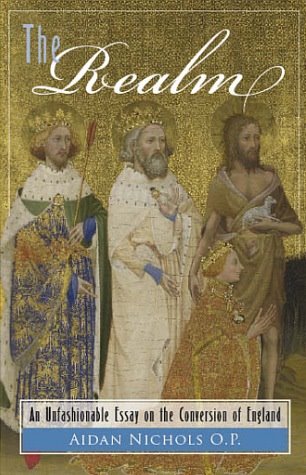The Terrible Silence of Jesus Christ
The Passion Sunday reading of Christ's judgement and execution contains a vignette eerily relevant to our times. Pontius Pilate is confronted when Christ claims to have come into the world to bear witness to the Truth. His answer is the response of a devastated intellect: "The Truth. What is that?"
Jesus' answer to Pilate was silence, and this is a cause for wonder. Jesus was asked many questions during His public ministry, and there is no other record of Him refusing to answer. Often His answers opened up wider and higher vistas than the questioner expected, but were always to the point. But in this case, not so much as a word. Why?
In his response, Pilate speaks for the nihilism prevalent in the late classical period, and which also dominates modern philosophy. The artist Frank Pash once remarked that some people feel sorry for Pilate, but he didn't: "He would have crucified anyone who gave him a headache". Though it wasn't Pilate who said "it is better for one man to die than the nation be destroyed", he was an exemplar of the means-justifies-the-end functionaries who dominate the public forums of late modernity, and who give us a US political race between an Abortion Party and a Torture Party. It's more common than we realise.
Writing in his encyclical Fides et Ratio, John Paul II warned that modern philosophy "rather than voicing the human orientation towards truth, has wilted under the weight of so much knowledge and little by little lost the capacity to lift its gaze to the heights, not daring to rise to the truth of being."
There is such a thing as intellectual vice, a fixed deformation of intellect that is the consequence of a persistent habit of thought. The intellect deformed by the false humility of nihilism is incapable of even acknowledging a truth to be approached. Ultimately, this vice leaves us self-blinded, incapable of repairing our own capacity for knowing, and cutting us off from the truth that saves: "If thine eye be darkened, thy whole body shall be full of darkness". The properly formed intellect sees the true and the good clearly, and orders its conduct accordingly. But the deformed intellect, blind to the true and good, sees no intrinsic moral order beyond the arbitrariness of power. The false humility both masks and empowers an arbitrary will.
To such a person, no answer will suffice because no answer can really be heard. Humanly, this person has passed the point of no return. The contemplation of this hellish state might lead us to despair of the person so trapped.
The grace of God transcends our notions of possibility, but the terrible silence of Jesus Christ reminds us that we cannot take this grace for granted. We do not know if Pilate later came to repent of his hardness of heart. But, at least on this occasion, God chose not to intervene.





3 comments:
Jesus did not reply because the answer was...Him. He was there, no word was necessary to explain the evidence.
There simply was no need to reply.
Adpoint
glasnudeln
glasnudeln hackfleisch
rezept sommerrollen
rezept für bruschetta
bruschetta machen
Post a Comment